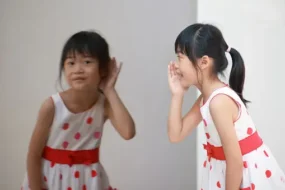August 21 is celebrated as World Senior Citizen’s Day. In 1988. US President Ronald Reagan proclaimed this holiday to raise awareness about issues affecting senior citizens and their quality of life. The main motto for me to write this blog is to throw light on how our senior citizens demand care, attention, sympathy, empathy, love, companionship, patience almost to the level of a child. All the elderly need utmost care, be it our parents, our grandparents, relatives, aged neighbours etc.

Getting old is a part of our human process. Old age is said to be the golden age – the age where we slow down, retire and slowly fall out of the rat race. The age when experiences, lessons and stories are many – the age where grey hair, feeble wrinkled rough skin, slow movements, depleting eyesight, bent postures etc are a sign of how much the person would have toiled all his/her life and reached this stage, in a carefree and selfless manner. Old age is also said to be an age of blessing which most miss out when they die young.
A lot of us face challenges while looking after the elderly people – we find them having childish nature, they are rigid – they do not listen to what we say, convincing them on change gets difficult, they are attention demanding, they get impatient, make us anxious. We find it difficult to keep them active throughout, they get prescriptive all the time, telling us how we do not know the way to do some things and how they are still perfect. They tend to repeatedly ask the same questions as they fail to understand or register any new learnings, they are sad and reserved and tend to overthink, all because they feel they are no more competent, strong or have lost the ability to do things the way they used to, in their young age.
My parents are aged between 65 and 75 years. While my mother has extreme OCD and is stubborn with her lifestyle, my father has dementia and is recovering from a brain stroke that left him wheelchaired. I have also faced challenges like mentioned above, while looking after my parents. My mother has her own ways and timings of doing things, she would want everything to be perfect – out of the 10 tasks for the day if 2 of them fail or are undone, she would still callout saying this was not done but never think of the positive that the other 8 were successful. On the other hand, my father hardly converses but when he does, he would have a sweet smile on his face, he would say – ‘Thank you’ for every little thing anybody does for him, he would nod in agreement for anything etc. Both mom and dad are not keen to learn new things or adapt to new ways of living or be tech savvy like I see other elderly adapting themselves to. They are okay to not be able to keep up with the pace of life. Like others, they also miss their old days of hustle, walking miles for things and feel low when their body does not have that vibe and energy anymore. They also feel regretful at times that they have to be dependent on us, their children for everything.
We have to understand the process of ageing first in order to understand why our parents or our grandparents tend to behave in a certain way. I am really thankful to have attended a recent session on ‘Caring for elders’, that enlightened me to learn the ageing process, understanding the mindset of the elderly and through my blog, I am able to share with each of you. Before I throw some light on the entire ageing process, I must share on how this psychologist highlighted the fact that the stories of our parents/grand parents can put us to shame – in the times when playing in the hot sun, walking miles to attend school or even to travel to a relative’s place, running, jumping and playing on the roads, fetching drinking water from different towns, sweating it out to earn a day’s meal etc, working hard to achieve something etc were their forms of adventure, struggles and hard work which involved all forms of physical activities, whereas for our generation – everything is available by the click of a button and play has turned to binge watching, less of struggles and physical activities. The fact that their generation had the most adventurous times and sacrifices to face is true to the core but taking care of self, became secondary to every other primary responsibility they handled.
Let me now throw some light on the entire Ageing process that we, human beings go through – Below are the systems/parts of the human body that undergo changes as one ages –
- Cardio vascular system – As we age, the size of the heart becomes bigger. If our lifestyle during our young age has been such that includes intake of oily food, excessive smoking and drinking alcohol, then this has a major adverse effect on the cardio vascular system.
- Bones, joints and muscles – In old age, all of these become frail, tend to shrink and become more susceptible to fractures. Muscles tend to lose strength and balance. This is the reason we see a lot of elderly people, losing balance while they walk or when they tend to stand. Arthritis is one of the most common issues faced by the elderly for their bones and joints. As per recent research, it has been found that Indian women are more prone to osteoporosis – the condition when bone strength weakens and is susceptible to fracture or injury, all mainly because of the level of hard work they put in, in managing a home, looking after families etc. It is said that even a slightest fall (if faced by an elderly), can cause fracture and minimalize the chances of rectifying the bone structure, due to age concerns.
- Digestive system – When a person ages, their bowel or digestive system gets compromised. They tend to face issues like constipation (more due to low fibre diet), constant burps etc. Their digestive system tends to be become weaker, due to diseases like diabetes, irritable bowel syndrome etc. The brain is said to have a direct effect on the stomach and intestines. The gastrointestinal tract or ‘the gut’ is sensitive to emotions. Anger, anxiety, sadness, elation — all of these feelings (and others) can trigger symptoms in the gut. If your aged parents or grandparents face any of these emotions on a high level, then you can observe how their eating habits, patterns get affected.
- Bladder and Urinary Tract – These systems in a human body that have been since the time of birth, also get aged eventually with time. Like the tyres of a car wear off with usage and time, our body parts also tend to wear off in the same manner, thereby reducing their functionality with age. Some examples are – people with diabetes, cannot hold urine for longer than 2 hours. While women face menopause issues, men tend to face issues of enlarged prostrate gland, resulting in the internal systems getting affected. This is the reason why they tend to wet their bed, lose control of excretion timings or are unable to calculate their relieving times. Such aged people then have to use diapers so as to help them relieve comfortably.
- Memory – As we age, our memory gets affected. This tends to be more on case specific basis, where some people might have short term memory loss but tend to remember long term or their childhood memories. While some people find it difficult to remember or register any new learnings and take time, which is why they ask repeatedly when they learn new things or adapt to new places of living or new areas. For the elderly who shift to new cities to be with their children, should not be left alone at least till they get adapted to the new place and surroundings.
I also came across the below behavioral changes that were shared by another psychiatrist who has an experience of over 30 years in psychiatry. The elderly population face the below behavioral changes –
- Loneliness
- Changes in mood and energy
- Change in Eating/sleeping habits/personal hygiene
- Forgetful/ confused/scared/worried/upset/anger
- Mishandle finances
- Anti-social.
With the knowledge of ageing process and behavioral changes clearly outlined, we should now realize and understand that this is the phase where our parents or grandparents are highly prone to health issues like diabetes, dementia, Alzheimer’s, arthritis, cancer, respiratory diseases, heart attack, eyesight issues etc. After covering all these details, it becomes important for all of us to understand our responsibilities towards the senior citizens on how to be more empathetic, sympathize with them, give them company, take care of their health with considering a certain amount of risk involved etc.
When it comes to our health, our parents go overboard and rush us to consult the doctor, spend on consultations, medicines etc just so that we get fit and fine soon and not suffer but when it comes to their own health, they manage housework/outside work etc with a migraine, stomach pain, fever or cold and never complain. They resort to home remedies and just ignore their health including injuries by saying it is minor and they’ll be fine but the kind of impact these injuries would have in future, we cannot predict. My dad has had his share of falls in his early times and always neglected or tried to recover early without any medical help, maybe this is the reason on how now in his old age, it has impacted his brain and has to face these issues. Our parents’ and grandparents’ generation has always lived this way of being selfless which has been their motto ever since. It is worth saluting them for their selfless attitude but also brings about a regret when we think how they put themselves last in the condition of looking after their offspring – us.

I read an article recently about how elderly abuse is on the rise in my city, Bangalore. Elderly abuse in the form of children misusing family wealth, properties etc and not allowing their parents to have their share. Most cases being where the parents own properties or lands and their children would take up loans to build homes, and eventually usurp the property on conditions of the loans taken, for effort put on building those properties and not allowing any share to their parents making them homeless, running pillar to post, filing cases against their children but to no vein of getting any help or justice.
A lot of old age homes around in the city that I have observed and even those that appear on websites show how large number of elderly and homeless senior citizens stay put there. Cases being, whose children stay abroad or have no help at home to take care of their parents. Very few homes I have visited or heard are in good condition, taking good care of the elderly in the form of meals, medicines, personal hygiene, exercises for improving cognitive ability, providing physiotherapy etc while others just minting money in the name of providing only rooms to stay, their medications and meals on a daily basis. They don’t have proper facilities, standalone buildings with no space to walk, just rooms to stay alone all day long and nurses to care. I have seen how these elders are to themselves, doing nothing, sitting lonely, overthinking, some even mentally disturbed that even doing nothing can affect their mental health in wrong ways.
Diseases like dementia, Alzheimer’s etc are on the rise. As per World Health Organization, around 55 million people worldwide have dementia with over 60% living in low and middle-income countries. By 2030, the numbers are said to rise to 75.6 million and 135.5 million by 2050. In US alone, it is said that with the number of people living with dementia are expected to more than double within the next 25 years affecting over a million US citizens, leading to an increase in the demand for dementia home care services.
We are all in the race of earning and taking responsibility of welfare for ours and our family’s future that we move our base to cities from our hometowns and live separately from our parents. While they are alone back home, feeling lonely, distressed, most commonly called the ‘empty nest’ syndrome, where parents feel alone and distressed when their children grow up and leave homes for making their own future. This leads to changes in mood, energy. Their eating habits, sleep patterns, timings etc change. They tend to become forgetful, confused, worried, upset over things happening around. Sometimes in all this confusion, they would mishandle finances at home or when they are out to buy things for home. They feel so depressed that they tend to withdraw from the society and stay indoors more and tend to overthink on everything.

In all these cases, how can we care for the elderly? how do we overcome the challenges we face or what are the steps we should take, so that we can give the best care for our aged community –
Follow the simple steps below and try to make the best use of them to make the lives of our elderly community worth living, at least during their last years of life – PS: these advices can be followed for your aged parents, grandparents, your aged neighbours in the society, relatives or any elderly you come across in the surroundings –
- Ensure to get a proper medical check up done to identify any health issues at an early stage. The earlier the detection, the better the chances of cure except for cases like dementia where there is no medication involved but with care, it can be managed.
- Keep a check on their lifestyle – their eating habits/patterns, their meal timings etc. One may find it difficult in the initial to allow them to adapt to proper timings but eventually this will work out well.
- Observe their hygiene and self-care patterns – ensure to see that they are taking bath well, change their clothes, make their hair etc. If you see them not doing these things on a timely basis, then it is a sign that they are depressed.
- Allow them to move out of their closed zone. Most of the elderly tend to withdraw themselves from society, it is important for them to go out, meet new people. Allow them to mingle – it could be next door neighbour or the other aged people in the society. The elderly love to mingle with their age group people – they begin to talk, share interests, become friends and this helps them to move to a happier zone.
Companionship is very important for the elderly. With this motive, recently Ratan Tata has started a senior citizen care initiative of Goodfellows, that allows caregivers to mingle with the elderly and give them company till the latter requires and on a paid basis. This is one-of-a-kind initiative and I must say, it definitely addresses the need of the elderly to get access to companionship during times when their children leave homes for work etc.
- Keep a check on their medicinal and financial needs at all times. For long distant care, along with these needs, also ensure they have access to contacts in cases of emergency, including legal and insurance help to be accessed at all times. While we provide care on a long distant basis, a share of risk should be considered but with the tips outlined, one needs to be vigilant and keep a check on them at all times.
- Maintain their habits of hobbies, humour, yoga etc – In terms of hobbies, the elderly may not be at the level of how they were during their youth age, but at least they could work on it at their own pace. Allow them to be part of laughter clubs, make them watch good healthy family comedies etc as we all know, laughter is the best medicines. Senior citizens can also do yoga and meditation that will help them have a good healthy mind.
- If you find them agitated or angry, do not shout at them – be vary of the tone of the voice you use while talking to them. It is better to talk politely and make a point, than shout at them or have a tone that could be more accusing in nature. Do not show irritation or anger –Consider how you may have to adjust the way you talk – remain calm and talk in a gentle way. Communication is extremely powerful, keep your tonality low. The intention with which you say things is important than the tone.
This has happened a lot in my case, and I have now realized how to be more patient with my parents, listen to their concerns and make them understand in a better way. Their minds at this time, tends to overthink more as they spend a lot of time alone, so let’s not give them chances to get more upset.
- Make greater use of your body language – show the elderly in ways of more gestures, body language etc that you care for them and not just by words. Show up to meet your aged parents on a frequent basis, get their favourite eatables at times, go for a walk with them, take them around places, give them a good foot massage at night, give their medicines on time etc. All of these gestures stand out in the eyes of the elderly, than just by words, saying that you care but don’t end up doing what is needed.
- When you see any elderly having issues walking or is losing balance or is unable to climb steps – allow them a helping hand and be their ‘walking stick’ even if it takes 10 minutes of your time. Our parents have brought us up from the time we did air kicks, crawled, held onto chairs and walked, have fallen many times etc but gave us that confidence to stand on our own feet – it is now time for us to do the same for them where we could lend our strong shoulders for them to keep their hands and walk with faith and confidence.
- As vendors/shopkeepers or when on the roads you see them stumble, taking time to understand things or even making payments or driving slow – understand their concerns, help them out and do not rush on them or demean them with your rude behaviour.
- Ensure to talk to the elderly – even a small phone call enquiring on how they are, what they ate, what they were doing etc and also sharing your side of stories will help them lighten up their mood. This definitely helps more in case of long distant caring. Talk to them happily on calls, smile at them, share a joke, tell them that you miss them and will meet soon – plan to do this frequently, if not daily at least twice a week.
- For those agitated, angry – give them an environment to be safe. Ensure all the electrical appliances are out of their reach or are unplugged. Arrange the furniture in a simple way, then in a cluttered way. Remove poisonous plants and dispose of hazardous substances.

Some senior citizens are as stubborn as today’s generation but if we show our care and concern in the right manner, by being empathetic, kind and patient with them we can definitely help them change for the better. All of this definitely takes time but we have to be patient and not abandon them during their most needed times.
A must remember for all – The elderly need as much care, concern, empathy and love to spend their difficult aged years happily and this is only possible if all of us take some time off our hushed-up lives, spend time with them and spread happiness – remember, every touch – be it a handshake, a hug given to them, a walk with them, having meals or even hearing their concerns out, gives them immense relief and satisfaction that they have you around to trust.
Our parents brought us to this world and cared immensely till we walked independently on our feet – this would not have been possible without their selfless love and millions of sacrifices. They let us chase our dreams but also sometimes made mistakes in their upbringing, may be because they did not have someone to tell them how to raise kids in the best way, they just did what they could by all means. By abandoning them, we are only disrespecting their love and falling prey to the silly ego clashes that will put us to deep guilt when you would not have them around to even apologize or get forgiven by them. Now is the time to be their support and parent in taking care of their needs the way they did for us. We may not match up to their level of love and care but we can certainly make a difference by doing small things that will have a lasting impression on the last years of their worldly lives.






